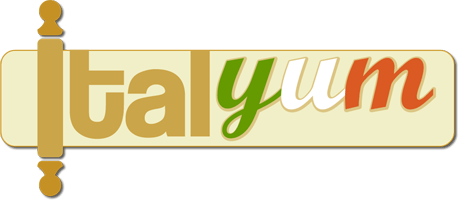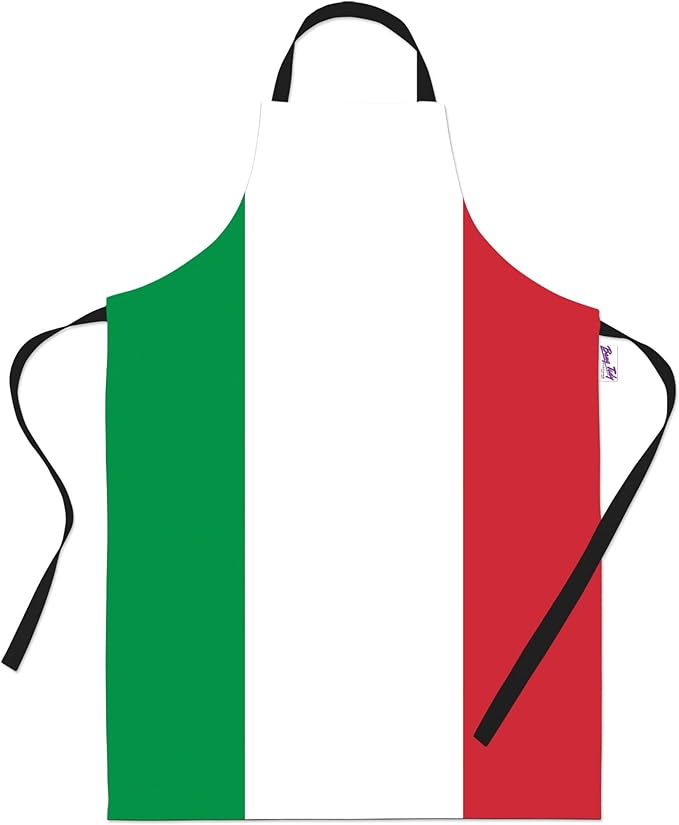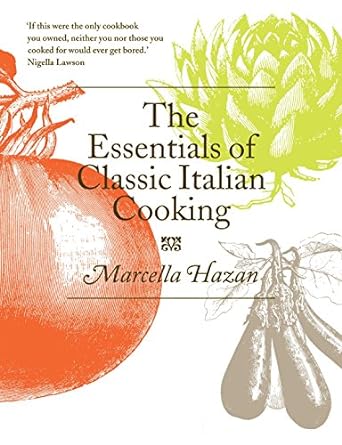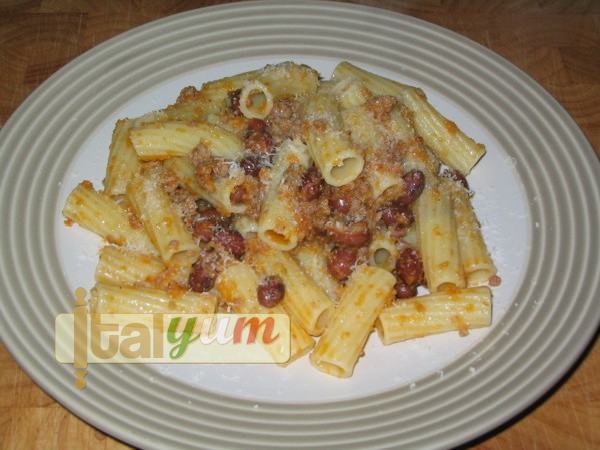
Maccheroni with sausage and beans sauce
In August 2011 I went to Italy for a little holiday and in that occasion I went to Suzzara, a lovely town near the city of Mantova. Suzzara is very close to the river Po, on the border between Lombardy and Emilia-Romagna regions. It goes without saying that people leaving in the Suzzara area, from the culinary point of view, enjoy the best from both the regions! Good wine, excellent salame Mantovano, any type of filled pasta (tortelli, tortelloni, cappelletti etc.) and probably the best stews in the world.I always remember when I was a little boy, going fishing in that area with my uncle. After fishing, we always stopped in some trattoria and asked for the local speciality; donkey stew. Wow, I have never had a better stew than that in my life. The leftovers from the stew are finely trimmed and added to various sauces, to top pasta, or added to a filling to make tortelli, ravioli etc.The sauce I am going to present just now, can be made in two ways; you can use stewed donkey meat (not likely!) or sausage (I have used Italian sausage). It is a very easy recipe to make and unbelievably tasty. Now, let’s cook! Note: for the vegetarian version of this dish, don’t use the sausage and cook for a little less time.
Equip your kitchen – Available at Amazon now
Clicking on equipment pictures takes you to Amazon where you can buy the items. We get a small revenue share of anything you buy which helps keep the site running.
Ingredients
- 400 grams (14 oz) Maccheroni
- 120 ml (4 fl oz) Extra virgin olive oil
- 1 Onion
- 1 Carrot
- 200 grams (7 oz) Italian sausage
- 150 ml (5 fl oz) White wine
- 1 tbs Tomato purée
- 400 grams (14 oz) Borlotti beans (canned)
- Salt and black pepper for seasoning
Instructions
- Rinse the beans and set them aside.
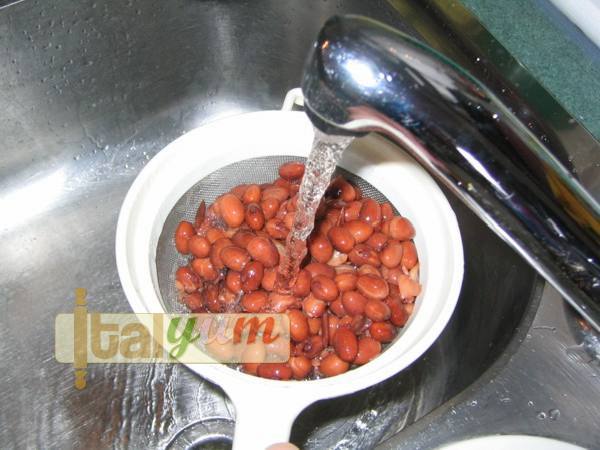
- Roughly chop the onion and the carrot. Put them into a food processor, blender, mixer, whatever you have to chop them very finely.
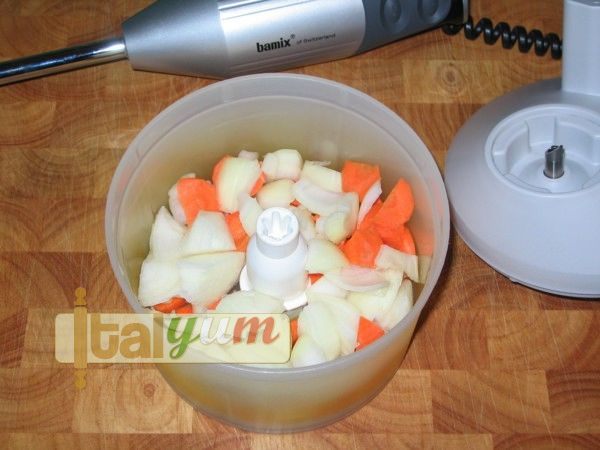
- Finely chop the onion and the carrot.
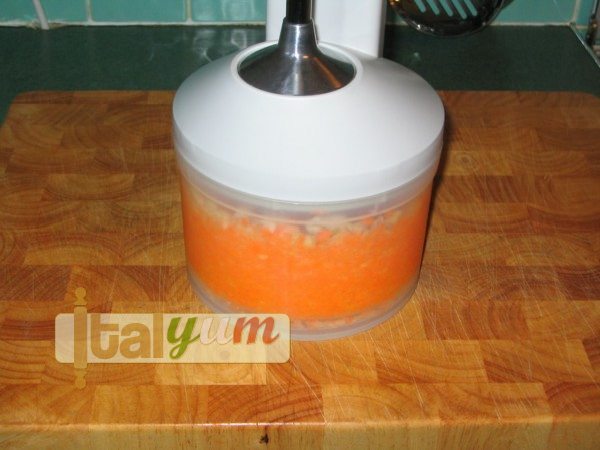
- This is what you should get.
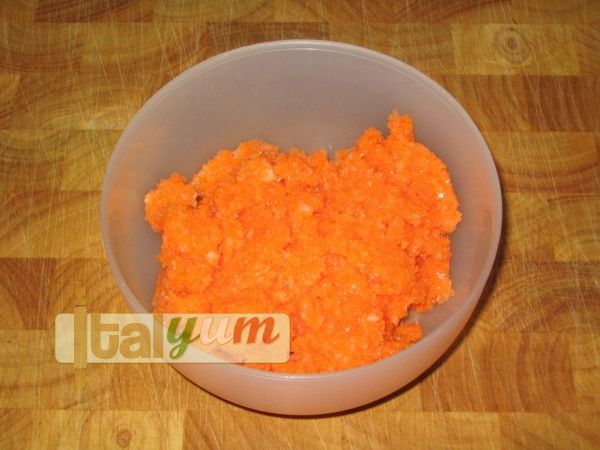
- Remove the casing of the sausage.
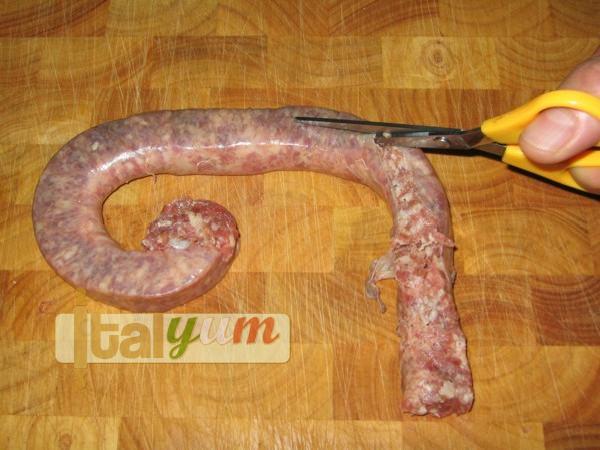
- Chop the sausage using a large cooks knife.
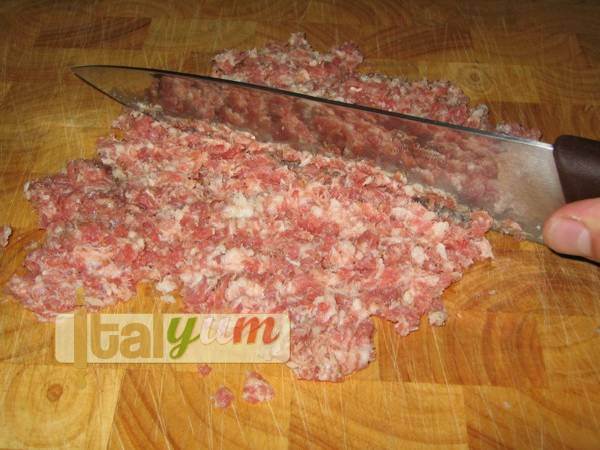
- Put the olive oil into a sauce pan and heat it over medium heat.
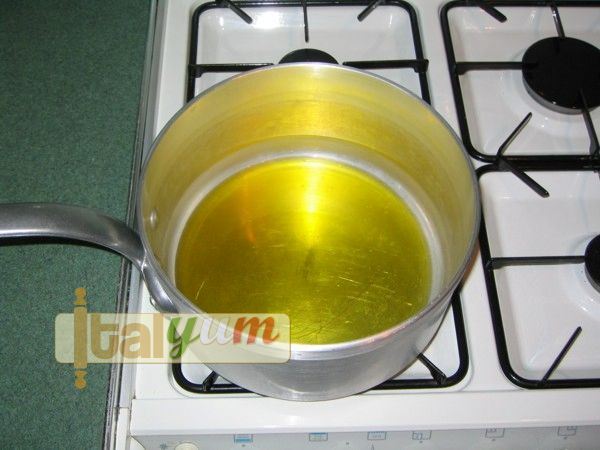
- When the oil is hot, add the onion/carrot mix.
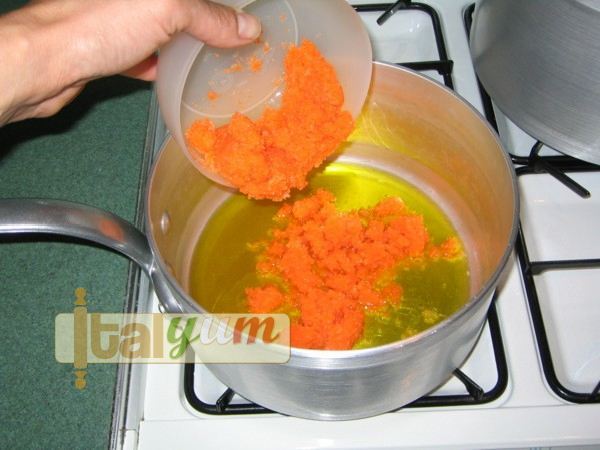
- Sweat the onion/carrot mix for 3-4 minutes.
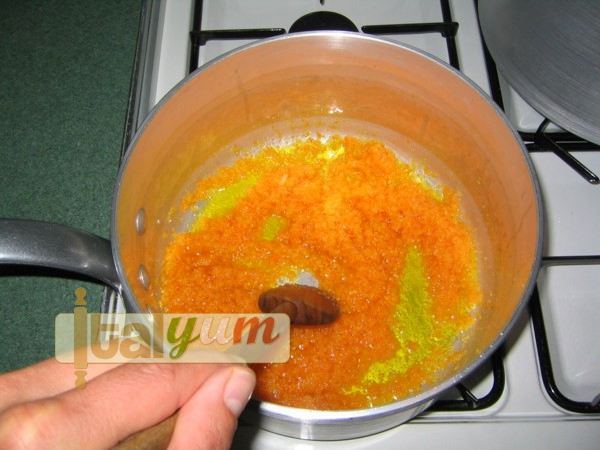
- Then, add the sausage into the pan. When you add the sausage into the pan, try to break it further, using your fingers, so that it falls into the pan in as many small pieces as possible.
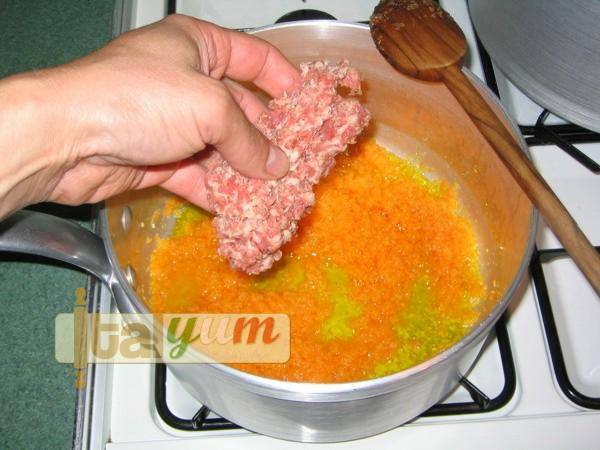
- Stir with a wooden spoon and at the same time use the spoon to break the sausage down in small pieces in case you still have some big lumps. Cook for about 8-10 minutes, regularly stirring. If you think that the sausage starts sticking to the bottom of the pan or is getting burnt, then you can decrease the heat or go to the next step immediately.
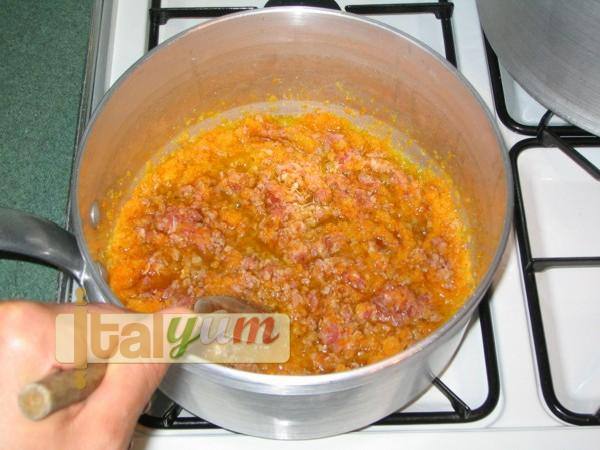
- Add one third of the white wine (50 ml – approx. 3 tablespoons) into the pan and let cook for another 3-4 minutes, regularly stirring.
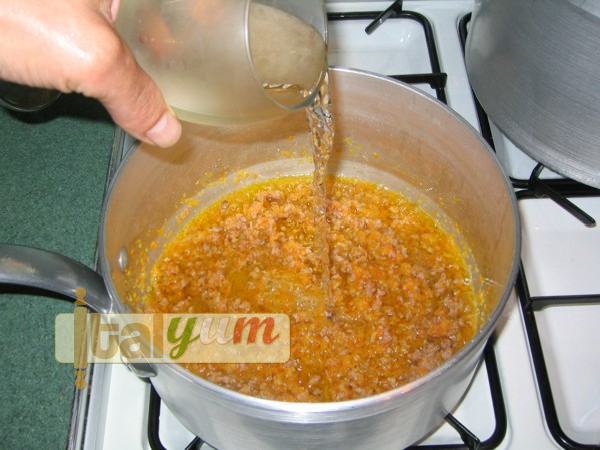
- Then, add the tomato purée and stir to evenly spread it in the sauce.
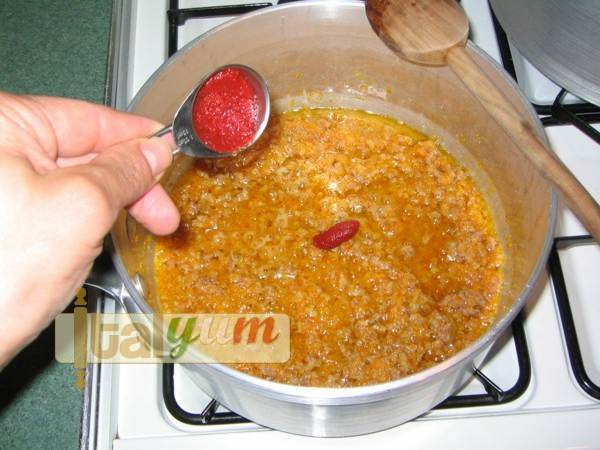
- Turn the heat to low and cover with a lid, leaving one side of the lid slightly open. We need to cook the sauce for about 40 minutes, so it is important that you stir every now and then, and that you check that the sauce does not stick to the bottom of the pan or get too dry or burnt.
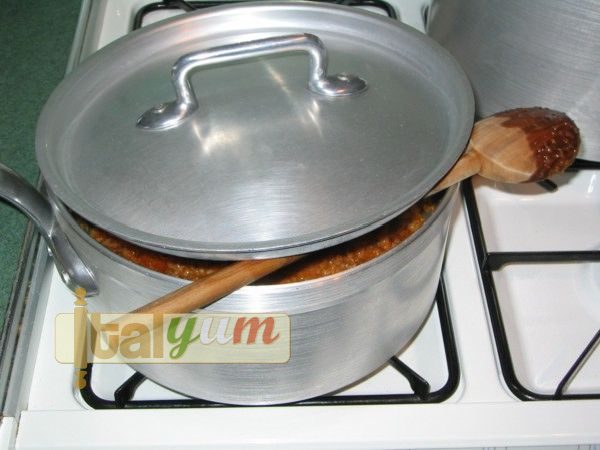
- If the sauce gets too dry, add a bit of the white wine you have left (I would say another 50 ml – approx. 3 tablespoons), cover with the lid (as shown in the previous picture) and keep cooking. Do not pour all the wine you have, because the sauce would become to liquid; just keep some of the wine for later, in case the sauce gets too dry; you may end up using it for the sauce or drink it.
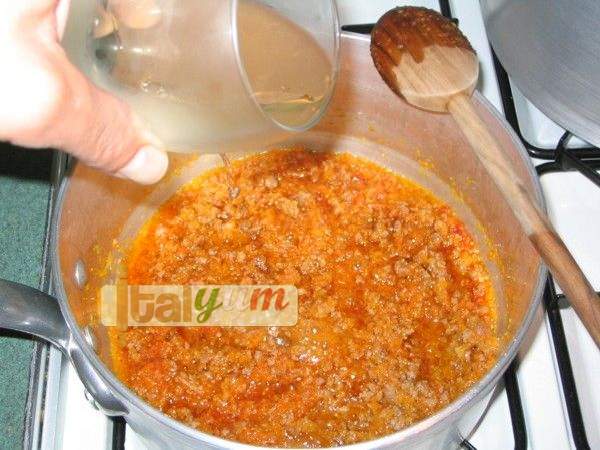
- 10 minutes before you reach the 40 minutes cooking time, check the seasoning. Add salt according to taste.
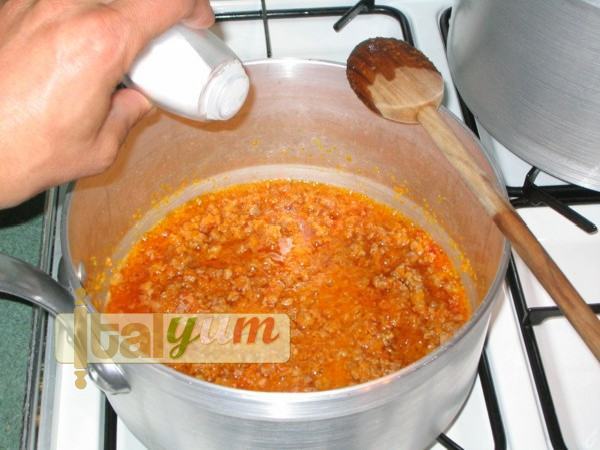
- Then, season with black pepper.
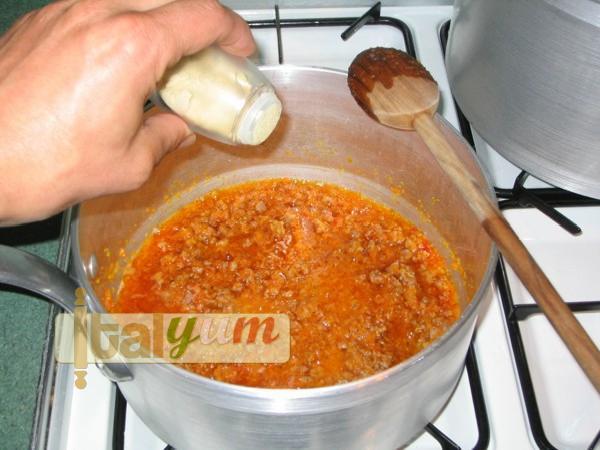
- Complete the 40 minutes cooking time, leaving one side of the lid slightly open.
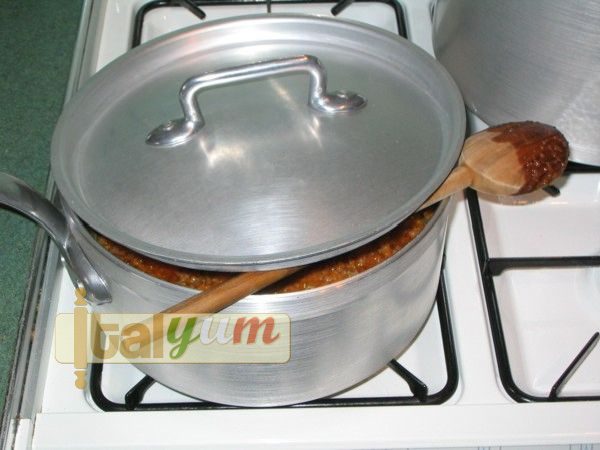
- After the 40 minutes have passed, you can now add the Borlotti beans into the pan.
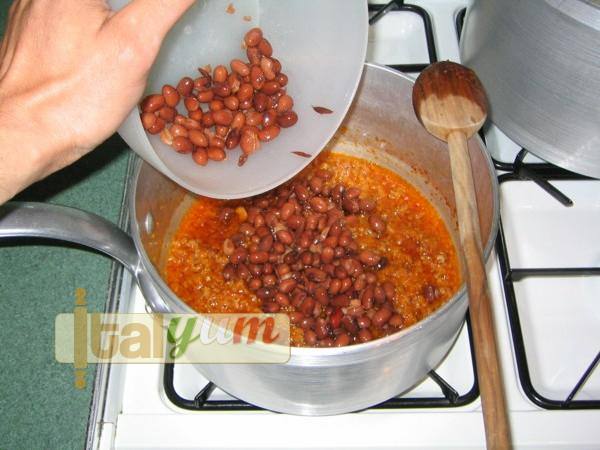
- Give it a good stir and cook without lid for about 10-15. This way we will bring the sauce to the right consistency, not too liquid, not too dry.
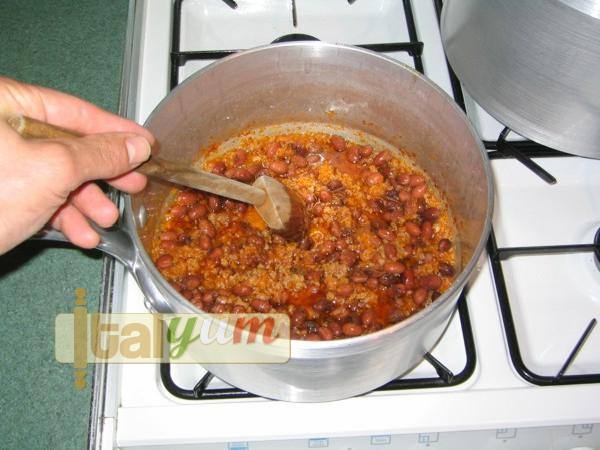
- Meanwhile, boil the pasta according to the instructions given on the packet. Remember to cook the pasta “al dente” and to use 10 g (1/3 ounce) salt for each litre (4 1/8 cups) of boiling water.
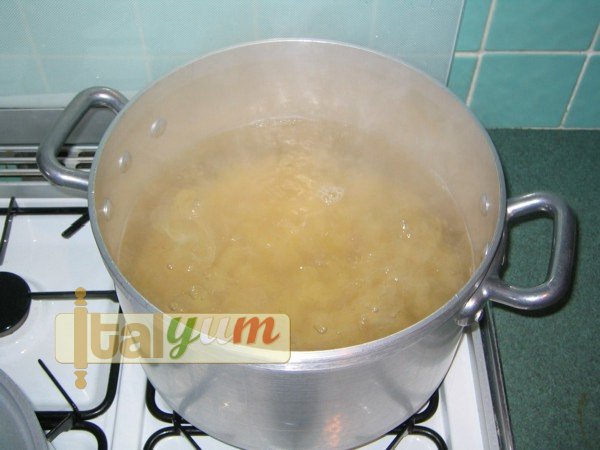
- When the pasta is ready, drain it and put it back into the big pan you have used to boil it. Add the sauce into the pan.
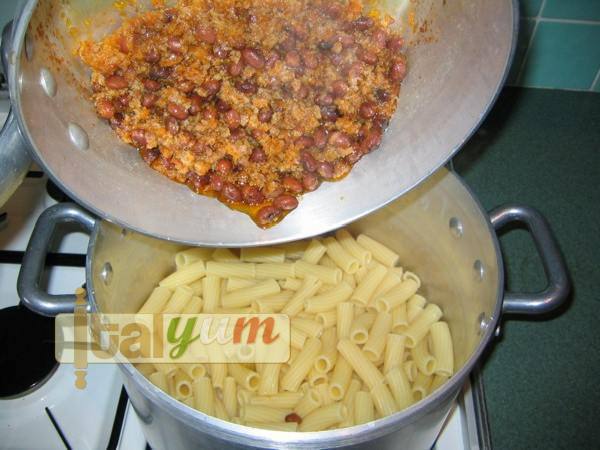
- Give it a good stir.
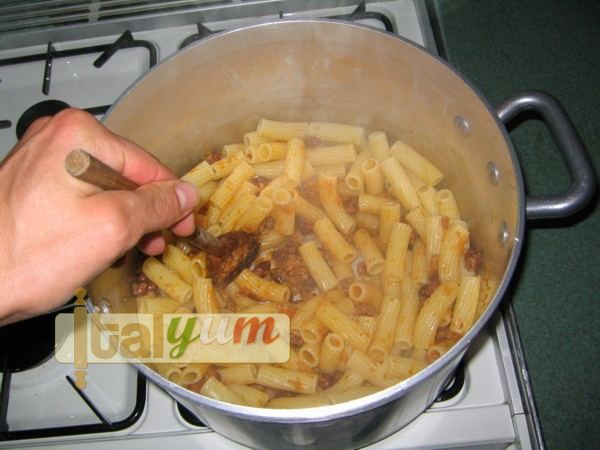
- Serve with a generous sprinkle of freshly grated Parmesan cheese. A good glass of bodied red wine is the ideal accompaniment to this dish.
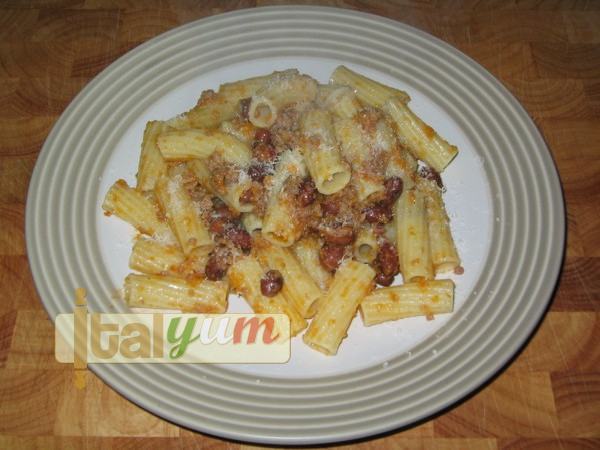
Nutrition
Calories: 650kcal
Tried this recipe?Let us know how it was!
